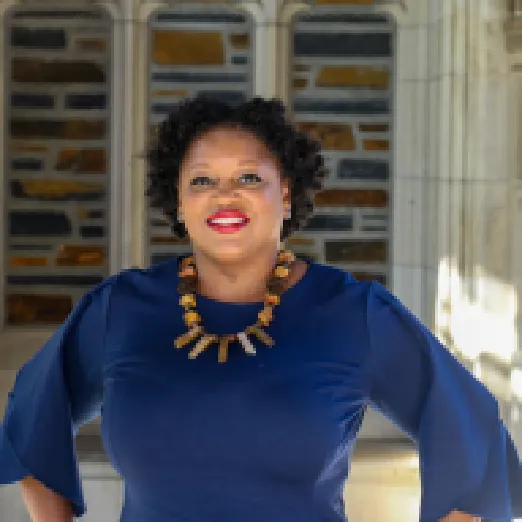Health Equity
Racial health disparities first appear at birth and never go away. Black babies have higher infant mortality rates than their white peers; black mothers die in childbirth at three times the rate of white mothers; and black Americans, despite having roughly the same occurrence of cardiovascular disease as white Americans, are thirty percent more likely to die from it.
In order to eliminate racial/ethnic and gender disparities in health, we must investigate the sociocultural, economic, and structural indicators of health in both risk assessment and risk prevention efforts. Cook Center researchers, often through the Center’s Health Equity Working Group, use an interdisciplinary approach to move beyond the acknowledgement of disparities toward a more complete understanding the root causes of both positive and negative health outcomes. From there, they inform practitioners, researchers and community health organizers on strength-based approaches to health.
The Health Equity Working Group uses a holistic approach to understanding and achieving health equity. Investigating the sociocultural, economic, and structural indicators of health is necessary in both risk assessment and risk prevention efforts to eliminate racial/ethnic and gender disparities in health. The Health Equity Working Group deploys an interdisciplinary approach to move beyond the acknowledgement of disparities toward understanding the root causes of both positive and negative health outcomes. We use this understanding to inform practitioners, researchers, and community health organizers on strength-based approaches to health. Our working group includes the broad intersections of race, gender, wealth, and health.

Olanrewaju “Lanre” Adisa
Olanrewaju “Lanre” Adisa is a graduate student in the Duke University School of Medicine and a member of the Health Equity Working Group with the Cook Center.

Paul A. Robbins
Paul Robbins is a developmental scientist who investigates the psychosocial processes by which context, culture, and identity mitigate or exacerbate inequitable health and educational outcomes at various life stages. Specifically, his work examines the developmental contexts and consequences of engagement in sports, families, and religious institutions to identify mechanisms that ensure optimal wellbeing within these spaces.

John D. Purakal
Dr. John Purakal is an Assistant Professor of Emergency Medicine at Duke University School of Medicine. His research interests include social drivers of health, racial & ethnic disparities of emergency care, and cardiovascular disease. Through his early career, Dr. Purakal has worked to advance Social Emergency Medicine, both at Duke University and across the country. He believes that the Emergency Department has a unique vantage point to the disproportionate role social determinants of health play in health outcomes in at-risk populations. His work aims to improve how we identify unmet social needs and address them, even when unrelated to their acute medical needs. With a passion for teaching, Dr. Purakal strives to find inventive ways to educate both trainees and his patients’ communities. He has a track record for developing interdisciplinary public health educational initiatives, geared at reducing gaps in health knowledge in underserved populations in Chicago and Detroit before joining Duke.

Kennedy Ruff
Kennedy Ruff graduated from Guilford College in 2022 with a B.A in Psychology and a minor in Biology. During high school, Kennedy was a part of the first cohort for the Hank & Billye Suber Aaron Young Scholars Summer Research Institute and now oversees the program. In addition to coordinating the Young Scholars Summer Research Institute, Kennedy is a research associate to Dr. Keisha Bentley Edwards with her research in health equity.

Keisha L. Bentley-Edwards
Dr. Keisha Bentley-Edwards is the Associate Director of Research and Director of the Health Equity Working Group for the Samuel DuBois Cook Center on Social Equity and an Associate Professor of Medicine, Division of General Internal Medicine, at Duke University. She holds several leadership positions within Duke’s Clinical and Translational Science Institute, and faculty affiliations with Duke’s Global Health and Cancer Institutes.
Dr. Bentley-Edwards’ research focuses on how racism, gender, and culture influence development throughout the lifespan, especially for African Americans. Her research emphasizes cultural strengths and eliminating structural barriers to support healthy development in communities, families, and schools. Dr. Bentley-Edwards has published and lectured extensively on the use of racial socialization and racial cohesion strategies to facilitate positive outcomes in Black adolescents, as well as how teacher perceptions and school resources can influence disciplinary practices and classroom management. As head of the Cook Center’s Health Equity Working Group, Dr. Bentley-Edwards leads a mixed method study investigating the relationships between religion and spirituality and cardiovascular disease risk factors for African Americans. She is dedicated to healthy birth and pregnancy outcomes, and reproductive health in general. Dr Bentley-Edwards is committed to eliminating racism and its effects on equitable outcomes in health systems, schools, and society. Her research has been supported by the Robert Wood Johnson Foundation, IBM, and the National Institutes of Health. Dr. Bentley-Edwards regularly shares her expertise on the role of structural racism and bias on health, education and social outcomes with families, policymakers, practitioners, and the media.









